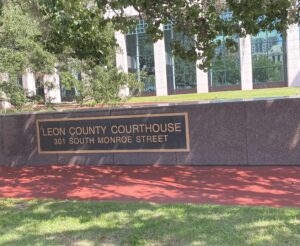
Florida House of Representatives member Randy Fine recently filed House Bill 57. If approved, this would ban the use of critical race theory in any context, including public universities and state colleges.
Adversaries believe CRT is one sided, telling only the side of black people and how they were afflicted and barraging white people for being the oppressors.
CRT is an academic framework that indicates that systematic racism is, has, will always be part of American society. While some believe banning CRT will have a major impact on the study of African American history, professors are not worried at all.
“They are projecting the idea that teaching critical race theory limits learning and any kind of collective forward movement that would be unifying, which is false,” says Dr. Kendra Mitchell, an assistant professor of English and modern languages at Florida A&M University.
Mitchell believes the ban of critical race theory is a way to ignore and silence the trauma and hardships black Americans have faced for centuries.
While Mitchell does not feel like it will have a major impact on HBCUs at this time, she thinks that it will eventually cause some people to begin to speak out on subjects that opponents of the bill will not find appealing in the future.
Professors not appearing worried about the ban has put some FAMU students at ease. Initially, some believed it would have an effect on their study and exploration of African American history.
“When I first read about it, I was a little worried about what it meant for HBCUs,” Rodrigo Gomez said, a junior transfer student at FAMU. “African American history is one of our main focus points.”
“I hope the ban isn’t approved,” Gomez said. “I don’t believe it’s necessary. It’s just another way to try and silence history if you ask me.”
Dr. Darius Young, director of the Meek Eaton Black Archives Research Center, also holds no concerns about the ban of CRT. He believes it will have very little, if any, impact on HBCUs.
“We cannot allow others to infringe on our intellectual freedom,” Young said. “As long as we are standing on the foundations of our disciplines, then you can’t tell me what I can’t say in my classroom.”